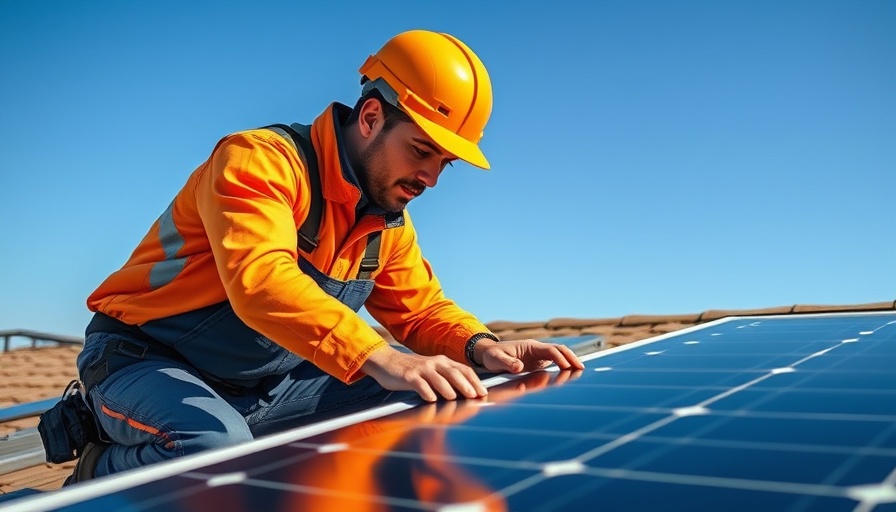
Introduction: Decoding the Value of Solar Panels
As the world increasingly shifts towards sustainable energy, the question on many homeowners' minds is whether investing in solar panels is truly worth the cost. While the initial investment can be daunting, understanding the long-term benefits and savings can provide clarity for those considering this alternative energy source.
Understanding the Costs Involved
Solar panel installation isn't just a simple transaction; it encompasses various costs, including the panels, inverters, mounting equipment, and installation fees. According to the National Renewable Energy Laboratory, the average cost for residential solar systems varies widely, typically ranging from $15,000 to $30,000 depending on location and energy needs. However, available incentives such as tax credits or rebates can significantly offset these expenses.
Long-Term Savings: A Financial Perspective
Homeowners often overlook the financial benefits over time. Energy costs continue to rise, and solar panels can lead to significant savings on electricity bills. Various studies indicate that homeowners often see a return on investment (ROI) of 20% or more, a rate that significantly outpaces average returns on housing.
Environmental Benefits: More than Just Numbers
Beyond the fiscal implications, moving towards solar energy has substantial environmental advantages. By harnessing renewable energy, owners contribute to reduced greenhouse gas emissions and reliance on fossil fuels. This shift not only benefits the environment but enhances a homeowner's property value, as eco-friendly homes are increasingly sought after.
Public Sentiment and Trends
According to a recent survey from the Solar Energy Industries Association, over 90% of Americans approve of solar energy. This growing sentiment reflects a broadening acceptance of solar technology, indicating that homeowners investing in these systems are not just financially savvy, but are also participating in a larger movement towards sustainability.
What to Consider Before Installation
While many homeowners might be eager to jump on the solar bandwagon, it’s crucial to consider the specific characteristics of your home. Factors such as location, roof space, and local regulations play significant roles in determining whether solar panels will be a beneficial investment.
Conclusion: Making an Informed Decision
Ultimately, the decision to invest in solar panels hinges on comprehensive research and weighing potential savings against initial costs. For homeowners aged 35-60, the possibility of enhancing home value and contributing positively to the environment makes this an attractive option. As renewable energy continues to gain momentum, the question may not be if solar panels are worth the cost, but how soon you’ll take the step towards a sustainable energy future.
 Add Row
Add Row  Add
Add 




Write A Comment